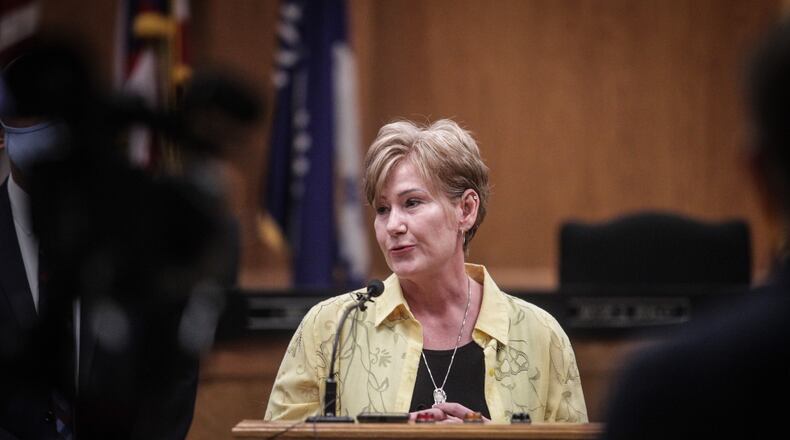Nearly 1,000 people had completed the 12-question online survey as of Wednesday, a vast majority of the respondents Dayton residents, Dickstein said.
The survey and additional information about the funding is available on the city’s American Rescue Plan page at www.daytonohio.gov/ARPADayton.
The city calls the funding an “unparalleled opportunity” to improve the quality of life for city residents and has developed a framework to allocate funds in six areas: neighborhoods, amenities, major catalytic projects, city projects, community investments and potential external awards to businesses financially impacted by the pandemic.
Dayton received the nearly $138 million through the $1.9 trillion American Rescue Plan Act signed by President Joe Biden in March to help citizens and communities recover from the economic and health effects of the coronavirus pandemic.
Though federal rules outlining precisely how the money can be spent haven’t been finalized, the city is also moving ahead with a series of community listening sessions, Dickstein said.
“We are still awaiting final guidance, which will allow and let us really understand with clarity how we can spend this money and where we can spend this money,” she said. “But want to make sure the community is aware that we are very interested in maximizing the impact of our opportunity and enabling this community transformation.”
The next community meeting is this morning at 11:30 at the Montgomery County Business Solutions Center, 1435 Cincinnati St., Dayton.
Dickstein said the city will analyze the survey results and provide a summary of the answers and do the same with information gathered at the community meetings, scheduled to wrap up July 27.
“We anticipate that the final guidance will be available to us about the end of July,” she said. “We’ll have our community engagement information back at that point in time and then we can start the work of the next step, which is honing in on exactly the kinds of investments that will have the greatest impact.”
Last month, Dayton commissioners approved the framework for how proposed projects will be evaluated.
The city was also selected as one of six “stimulus command centers” around the country that will try to coordinate the use of federal relief and recovery funds to maximize their impact. The command center will help local officials and stakeholders work together to try to effectively deploy funding, make thoughtful investments, leverage private resources and fulfill priorities, officials said.
Dayton is the smallest U.S. city to be chosen as a stimulus command center, which will be 18-month partnerships involving the U.S. Conference of Mayors, Accelerator for America and Drexel University’s Nowak Metro Finance Lab.
The other cities selected are Los Angeles; Philadelphia; St. Louis; Louisville, Kentucky; and Birmingham, Alabama.
Community meetings
Friday, July 9, 11:30 a.m. — Montgomery County Business Solutions Center, 1435 Cincinnati St., Dayton
Wednesday, July 14, 5 p.m. — Lohrey Recreation Center, 2366 Glenarm Ave., Dayton
Thursday, July 15, 5:30 p.m. — Wesley Community Center, 3730 Delphos Ave., Dayton
Wednesday, July 21, 10:30 a.m. — Lohrey Recreation Center, 2366 Glenarm Ave., Dayton
Monday, July 26, 3 p.m. — Connor Child Health Pavilion, 1010 Valley St., Dayton
Tuesday, July 27, 12:30 p.m. — Dayton Metro Library, Downtown, 215 E. Third St., Dayton
Where Dayton plans to target American Rescue Plan spending
Neighborhoods: City-led and managed projects that would support healthier lifestyles through neighborhood revitalization efforts.
Amenities: Projects and investments that provide recreational and lifestyle assets to the community.
Major catalytic projects: Projects and investments that address economic disparities and incent additional development and economic activity.
City projects: Projects and investments that support city services.
Community investments: Community-driven projects to partners and community groups offering programs and services serving the hardest-hit areas and economic sectors.
External awards: Funding to support vulnerable economic sectors that might not survive the pandemic, like hospitality and tourism, as well as other mitigation efforts and community requests responding to, or addressing, the health emergency.
Source: City of Dayton
About the Author

